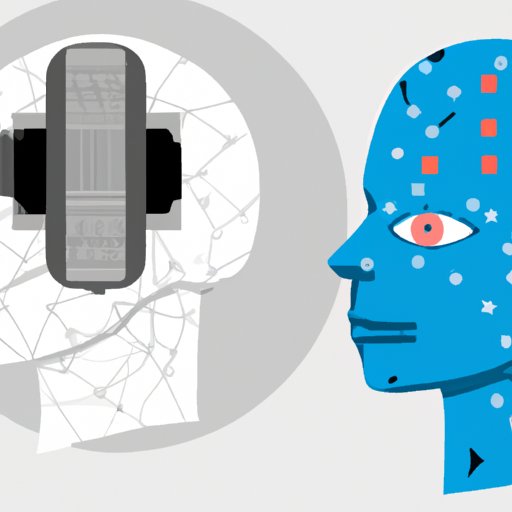Introduction
Artificial intelligence (AI) is a form of technology that has revolutionized many aspects of modern life. It is used in a variety of ways, from automation to robotics to natural language processing. As AI continues to advance, it is important to consider the legal and ethical implications of this technology. This article will explore the legal and ethical implications of AI technology, and discuss how these implications can be addressed.

Exploring the Legal and Ethical Implications of AI Technology
As AI technology advances, it is challenging traditional ethical standards. AI technologies may be used to automate certain processes, such as decision-making, which can have an ethical component. Additionally, AI may be used to monitor or control certain activities, such as surveillance. These activities may raise ethical concerns, as they may infringe on personal privacy or other rights.
Moreover, AI technology may be used to cause harm. For example, AI may be used to manipulate people or to spread false information. While AI technology can be used for beneficial purposes, it can also be used for malicious intentions. As such, it is important to consider the potential for AI to cause harm when designing and deploying AI systems.

Investigating the Role of Ethics in AI Design
When designing and deploying AI systems, it is important to consider the ethical implications of the technology. One area to consider is the impact of AI on personal privacy. AI technologies may be used to collect and store large amounts of personal data, which could be used for nefarious purposes. As such, it is important to consider the potential implications of collecting and storing personal data when designing and deploying AI systems.
Another area to consider is the moral and ethical implications of using AI for decision-making. AI technologies may be used to automate certain decisions, such as loan applications or job interviews. This raises ethical questions about fairness, accuracy, and accountability. It is important to consider these implications when designing and deploying AI systems.
Debating the Pros and Cons of Using AI for Surveillance Purposes
AI technologies may also be used for surveillance purposes. On the one hand, AI can be used to improve security by identifying suspicious activity or detecting threats. On the other hand, AI can be used to monitor people without their knowledge or consent, which raises ethical questions about personal privacy. As such, it is important to consider both the benefits and risks of using AI for surveillance purposes.
Conclusion
In conclusion, AI technology has the potential to revolutionize many aspects of modern life. However, it is important to consider the legal and ethical implications of using AI technology. AI technologies may be used to automate certain processes, such as decision-making, which can have an ethical component. Additionally, AI may be used to monitor or control certain activities, such as surveillance. Moreover, AI technology may be used to cause harm, and it is important to consider the potential for AI to cause harm when designing and deploying AI systems. Finally, it is important to consider the impact of AI on personal privacy, and the moral and ethical implications of using AI for decision-making when designing and deploying AI systems.
When considering the use of AI for surveillance purposes, it is important to weigh the benefits and risks of using AI for this purpose. AI technologies can be used to improve security, but they can also be used to monitor people without their knowledge or consent. As such, it is important to consider both the benefits and risks of using AI for surveillance purposes.
In summary, AI technology presents both opportunities and challenges. It is important to consider the legal and ethical implications of using AI technology, and to carefully weigh the pros and cons of using AI for surveillance purposes. By doing so, we can ensure that AI technology is used responsibly and ethically.
(Note: Is this article not meeting your expectations? Do you have knowledge or insights to share? Unlock new opportunities and expand your reach by joining our authors team. Click Registration to join us and share your expertise with our readers.)
